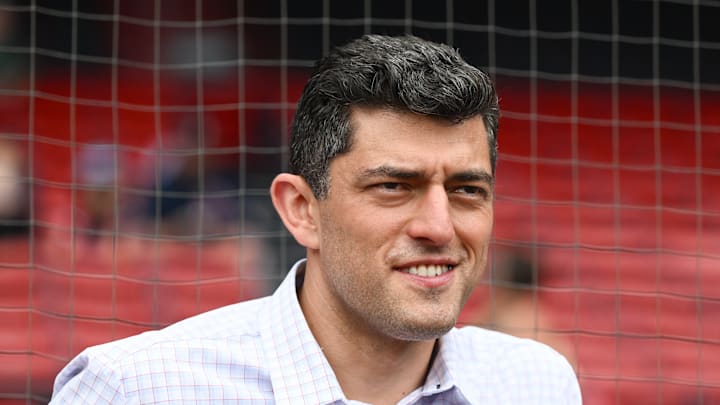The writing has been on the wall for quite awhile now.
Nothing, of course, is set in stone but it seems increasingly likely that Chaim Bloom is going to take over as President of Baseball Operations once John Mozeliak steps aside, perhaps earlier than expected.
If that’s true, maybe the Cardinals should steal an idea from the Dodgers and give him a growing payroll to work with.
Now, I’m not arguing that the Cardinals should attempt to match the Dodgers’ payroll. There’s no world where the team will start handing out a billion dollars in a single offseason, even for unicorn superstars.
But turn the clock back to 2014 and perhaps there’s a lesson to be learned.
In October of that year, the Dodgers made Andrew Friedman the highest-paid front-office executive in baseball, handing him $35 million over five years (a contract that has since been extended) to take over as President of Baseball Operations. Friedman had previously been with the Rays, joining the organization in 2003 and taking over as the team’s general manager in 2005. In his time there, he led the Rays to their first playoff appearance and first World Series berth.
Friedman perfected the Rays’ now-famous approach – use smart penny-pinching decisions to find success in a tough market. He had been named Baseball Executive of the Year by The Sporting News and had enjoyed previously-unseen success in Tampa Bay.
Friedman’s analytical approach wowed the Dodgers, who must have been thinking only one question: What could this guy do with a real payroll? Since Friedman took over, here’s where the Dodgers’ payroll has ranked in baseball: First, first, first, third, fourth, first, first, first, sixth, sixth. In that same time period, the Dodgers have never won fewer than 90 games (except the 2020 COVID season, where the team went 43-17 and won the World Series).
Turns out pairing the former boss of the Rays with a real payroll was a match made in heaven.
That leads us to the here and now and Chaim Bloom who, you might have heard, rose to Vice President of Baseball Operations for the Rays after Friedman left. Bloom, who started in Tampa Bay as an intern in 2005, continued where Friedman left off, fielding a consistent winner in Tampa Bay despite dealing with the same payroll constraints.
If Bloom takes over in St. Louis, perhaps the team should steal a page from the Dodgers’ playbook and see what he can do while flexing some payroll muscle.
The Cardinals, of course, spend a respectable amount. This year, like almost any year, they rank in the upper half of payroll, checking in at 12th in the league in team contracts. That’s nothing to be ashamed of in a smaller market.
But the team is also famously reluctant to break the bank in free agency, no matter how dire the need. It was nice to see a bigger contract handed out to Sonny Gray this year but I’m still trying to figure out what kind of superstar will justify the team going past John Mozeliak’s famous puke point.
If there’s a time for the team to finally let loose in free agency, a change at the top involving Bloom would seem to be it. Let the man who succeeded in Tampa Bay mirror his smart acumen with some financial might.
There is, of course, the elephant in the room. Bloom already had a chance to run a large-market team with the Red Sox. Outside of one playoff appearance, his tenure there was disappointing.
Some context, though, is required. Following the tenure of Dave Dombrowski, whose leadership led the team to the highest payroll in the sport before Bloom took over, the Red Sox seemed deadest on shedding salary. Look no further than the decision to trade Mookie Betts, a transaction that has stuck to Bloom since.
The Red Sox stint was undoubtedly a failure. But it seemed destined to be one with the Red Sox attempting to mimic the Rays’ path toward affordable sustainability.
Maybe it’s time to finally figure out what Bloom can do with a team committed to spending.
